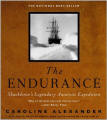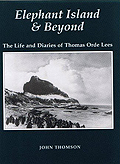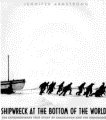Leonard Duncan Albert Hussey (1891-1964)
Biographical
notes
Meteorologist
Endurance
1914-17 - 23 at the start of the expedition - (also referred
to as "banjo player" in the credits to the film "South")
Meteorologist, assistant surgeon
Quest
- Ernest Shackleton 1921/1922
The Endurance Expedition

Like countless other young men, Hussey wrote to Shackleton to request a position on what would become the Endurance expedition, at the time of his application, he had just returned from an expedition to the Sudan where he had been employed as an anthropologist, he had read about the expedition there in a month old newspaper. Hussey was lucky enough to be called for interview with Shackleton, in Hussey's own words, it went like this:
-
"He called for me, looked
me up and down, walked up and down when he was talking
to me, didn't seem to take any notice. Finally he said,
"Yes, I like you, I'll take you." He told me afterwards
he took me because he thought I looked funny!"
Shackleton's judge of character was to prove uncanny as Hussey became an invaluable addition to the crew in particular helping to raise the spirits and moral of the other men with his ready wit and banjo playing during the long days lost in the ice floes and while waiting for rescue on Elephant Island.
He was not at all expert at playing the banjo, though his instrument had been with him on previous adventures, having even been played to an audience of cannibals in Africa. Hussey had been prepared to leave the banjo behind when the men were deciding what to take across the ice with them and what to leave behind:
"We must have that banjo if
we lose all our food, it's vital mental medicine".
Shackleton
The banjo was brought forth to celebrate the capture of food in the form of a seal or penguin and during the time on Elephant Island, a concert was held each Saturday night in the soot and tobacco darkened confines of the "Snuggery." Favourite songs were Swannee River, Massa's in the Cold Ground, Little Brown Jug and John Peel. There were also many songs written by the men themselves to existing tunes usually about and ridiculing each other.

The Rookery, the scientific laboratory
with Hussey (right) examining the Dimes anemometer
and James (left) removing rime from the dip-circle,
the electrograph is on the right.

Leonard Hussey and Samson, the smallest man on the expedition
and the largest dog
Biography
Leonard Hussey was born in Leytonstone, London, England, one of nine children, his father was in the printing industry.
He enrolled at the University of London in 1909 gaining degrees in psychology, meteorology and anthropology from the University of London at Kings College.
On return to England, like many of the other expedition members, Hussey became a part of the War effort being commissioned as a 2nd Lieutenant in the Royal Garrison Artillery and rising to the rank of Captain by the end of the war. He saw much battle action in France, including St. Quentin and Dixmunde and on the North Russia front where he served once again with Ernest Shackleton on operation Syren.
He remained in contact with Shackleton and completed the final editing of Shackleton's book of the 1914-17 Endurance expedition "South" - without payment. In 1921, Shackleton invited Hussey to join him on his last expedition to Antarctica aboard the Quest as meteorologist and assistant surgeon as Hussey had qualified in medicine since his return from the Endurance expedition.
Shackleton had been ill with suspected heart disease (suspected because he would not allow himself to be examined by a doctor) for some time. He had put on weight and was smoking and drinking too much, despite surviving a heart attack in Rio de Janeiro he pressed on, but died of another heart attack on South Georgia.
Hussey accepted the duty of escorting Shackleton's body back to England, but by the time he reached Montevideo (Uruguay) a telegraph was received from Shackleton's widow requesting that her husband be laid to rest on South Georgia. Hussey returned with the body and made the necessary arrangements. On March 5th 1922 Shackleton's body was laid to rest at the Norwegian cemetery alongside the whalers.
After the end of WW1, Hussey's career had turned towards medicine, by 1923 he was a member of the Royal College of Surgeons and a Licentiate of the Royal College of Physicians. He was in general medical practice in London up until 1940.
During WW2, he joined the Royal Air Force as a medical officer being posted to Iceland with the rank of Squadron Leader and then stationed at RAF Benson in London. He had a distinguished war record being twice mentioned in despatches. (01/01/1945 and 14/05/1945) and receiving the Military OBE.
Hussey published his own book "South with Endurance" in 1949, in the same year he served as ship's surgeon on the S.S.Clan Macauley which sailed from England to South Africa and Australia.
He continued to practise as a G.P. in Hertfordshire until around 1957 the same year that he became president of the Antarctic Club. Having been on so famous an expedition, Hussey gave many lectures about his Antarctic adventures until ill health in retirement prevented him from continuing. He gave his notes and lantern slides to a friend, Ralph Gullet, a local Scout Leader. His famous banjo was donated to the British Maritime Museum in 1959.
He was married to Grace Muriel Hellstrom for many years - they had no children. Leonard died in 1964 aged 72. Grace died in 1980.
I have just read the references to Leonard Hussey. He was at RAF station Halton, Bucks. when I was there in 1955/56. I met him there, I think he was a GP looking after families at the officers' married quarters. I had previously read the book about Shackleton's voyage and his mention of Hussey and his "Banjo" (I thought it was a fiddle). So, when I chatted with him and found out who he was, we had a pretty long discussion. I found him to be a quiet unassuming man, but with a glint in his eye of fun and humour. I could well understand Shackleton's keen appreciation of his good effect on the morale of those concerned. It was good to read about him and have more details of his career. It fitted him so well. I left RAF Halton and came to Canada in 1957, so I had only a short glimpse of a great personality. Thanks for reminding me.
Peter D L Roper
Just reading your notes on Dr Hussey in Cool Antarctica and notice that you mention that he gave his lantern and notes to Ralph Gullet. I can add that he wrote a lovely letter to Ralph saying how difficult it was to part with them but that "the lads would be pleased to know that their story continued to be told". The follow up to this is that I took over presenting Dr Hussey's lecture on Ralph's behalf from 1990 and then just before he died he wrote a similar letter to me asking for me to continue to take the story forward. I have since used the artefacts, notes and lecture over the years ( about 200 presentations) to raise monies for a wide variety of charities ranging from the Shackleton Library at Scott Polar, to sponsoring kids on the London Sailing Project to providing gers for homeless children in Mongolia.
Regards, Geoff Selley FRGS
References to Leonard Hussey by Orde-Lees in "Elephant Island and Beyond" buy USA buy UK
-
We had great fun this evening. Everyone was weighed and measured. Underclothing only is prescibed costume and we were all poking fun at each others grubby garments. Hussey our irrepressible little wit, appeared with his chest and bixeps padded and fell to posing. He is intensely funny. I weighed 174 lbs. This is about 27lb. above my normal weight which speaks well for our feeding here.
-
The vagaries of the climate quite bewilder Hussey, our meteorologist, for just as he thinks it is going to do one thing the precise opposite often happens, but on the whole he takes his troubles very cheerfully; indeed he is now the most genuinely cheerful amongst us and his general cheeriness does much to enliven the tone of our table-talk and even to make others take their own little troubles more lightly.
He is a Londoner by birth and is continually being chaffed about being a Cockney, a part which he often acts to perfection. His wit and repartee are exceedingly bright and invariably in the best taste. He is a B.Sc. of London University and reckoned very good at his own job.. Although no more than 23 years of age. he has had previous experience, having been a member of the Welcome expedition to the Sudan under Mr. Welcome and the firm Burroughs and Welcome.
He is a banjoist of unusual merit and it is very pleasant to have music of any kind down here; his repertoire is sufficient to prevent his tunes becoming too monotonous, which cannot be said of my own. I have my old banjo with me, but as the drum burst on the way out I make this the excuse for not playing; actually my execution is so inferior to Hussey's that the comparison would not enhance my reputation in any way! Hussey is one of our smallest members but makes up in energy what he lacks in statue. -
Thawing everywhere and so mild that Kerr and Hussey washed their faces. They washed them quite clean. To us, they looked so unusual that their appearance at first gave us an instinctive impression that they were ill.
-
Last night's concert was a great success. Hussey the indefatigable with his banjo and it really does as, as Sir Ernest said, supply brain food; not exactly intellectual food, but music hath charms altogether unique on Elephant island. Hussey obliged with his inimitable recitations, with a very good-humoured sally at me.
References to Leonard Hussey in Shackleton's book "South!" buy USA buy UK
- The ship was blocked at one point by a wedge-shaped
piece of floe, but we put the ice-anchor through it,
towed it astern, and proceeded through the gap. Steering
under these conditions required muscle as well as nerve.
There was a clatter aft during the afternoon, and
Hussey, who was at the wheel, explained
that "The wheel spun round and threw me over the top
of it!"
- Later there was a really splendid dinner, consisting
of turtle soup, whitebait, jugged hare, Christmas pudding,
mince-pies, dates, figs and crystallized fruits, with
rum and stout as drinks. In the evening everybody joined
in a "sing-song." Hussey had made a
one-stringed violin, on which, in the words of Worsley,
he "discoursed quite painlessly." The wind was increasing
to a moderate south-easterly gale and no advance could
be made, so we were able to settle down to the enjoyments
of the evening.
- The quarters in the 'tween decks were completed
by the 10th, and the men took possession of the cubicles
that had been built. The largest cubicle contained Macklin,
McIlroy, Hurley, and Hussey and it
was named "The Billabong".
- As the drift was mostly affected by the winds, the
weather was closely watched by all, and Hussey,
the meteorologist, was called upon to make forecasts
every four hours, and some times more frequently than
that. A meteorological screen, containing thermometers
and a barograph, had been erected on a post frozen into
the ice, and observations were taken every four hours.
- "About a mile from Patience Camp we had a welcome
surprise. Sir Ernest and Hussey sledged
out to meet us with dixies of hot tea, well wrapped
up to keep them warm.
- "Rickenson, who was still very weak and ill, but
very cheery, obtained a place in the boat directly above
the stove, and the sailors having lived under the Stancomb
Wills for a few days while she was upside down on the
beach, tacitly claimed it as their own, and flocked
up on to its thwarts as one man. There was one "upstair'
billet left in this boat, which Wild offered to
Hussey and Lees simultaneously, saying
that the first man that got his bag up could have the
billet. Whilst Lees was calculating the pros and cons
Hussey got his bag, and had it up just
as Lees had determined that the pros had it. There were
now four men up on the thwarts of the Dudley Docker,
and the five sailors and Hussey on
those of the Stancomb Wills, the remainder disposing
themselves on the floor."
- Heavy bales of sennegrass, and boxes of cooking-gear,
were lifted bodily in the air and carried away out of
sight. Once the wind carried off the floor-cloth of
a tent which six men were holding on to and shaking
the snow off. These gusts often came with alarming suddenness;
and without any warning. Hussey was
outside in the blizzard digging up the day's meat, which
had frozen to the ground, when a gust caught him and
drove him down the spit towards the sea. Fortunately,
when he reached the softer sand and shingle below high-water
mark, he managed to stick his pick into the ground and
hold on with both hands till the squall had passed.
- After supper they had a concert, accompanied by
Hussey on his "indispensable banjo."
This banjo was the last thing to be saved off the ship
before she sank, and I took it with us as a mental tonic.
It was carried all the way through with us, and landed
on Elephant Island practically unharmed, and did much
to keep the men cheerful. Nearly every Saturday night
such a concert was held, when each one sang a song about
some other member of the party. If that other one objected
to some of the remarks, a worse one was written for
the next week.
- The demons of depression could find no foothold
when he was around; and, not content with merely "telling,"
he was "doing" as much as, and very often more than,
the rest. He showed wonderful capabilities of leadership
and more than justified the absolute confidence that
I placed in him. Hussey, with his cheeriness
and his banjo, was another vital factor in chasing away
any tendency to downheartedness.
- During the afternoon three adelie penguins approached the ship across the floe while Hussey was discoursing sweet music on the banjo. The solemn-looking little birds appeared to appreciate "It's a Long Way to Tipperary," but they fled in horror when Hussey treated them to a little of the music that comes from Scotland. The shouts of laughter from the ship added to their dismay, and they made off as fast as their short legs would carry them.
Other Crew of the Endurance Expedition
Bakewell,
William - Able Seaman
Blackborow,
Percy - Stowaway (later steward)
Cheetham,
Alfred - Third Officer
Clark, Robert S.
- Biologist
Crean, Thomas
- Second Officer
Green, Charles J.
- Cook
Greenstreet,
Lionel - First Officer
Holness, Ernest
- Fireman/stoker
How, Walter E.
- Able Seaman
Hudson, Hubert T.
- Navigator
Hurley, James Francis
(Frank) - Official Photographer
Hussey,
Leonard D. A. - Meteorologist
James,
Reginald W. - Physicist
Kerr, A. J.
- Second Engineer
Macklin,
Dr. Alexander H. - Surgeon
Marston, George
E. - Official Artist
McCarthy, Timothy
- Able Seaman
McIlroy, Dr. James
A. - Surgeon
McLeod, Thomas
- Able Seaman
McNish, Henry
- Carpenter
Orde-Lees, Thomas
- Motor Expert and Storekeeper
Rickinson, Lewis
- First Engineer
Shackleton,
Ernest H. - Expedition Leader
Stephenson,
William - Fireman/stoker
Vincent, John
- Able Seaman
Wild, Frank
- Second in Command
Wordie, James M.
- Geologist
Worsley, Frank
- Captain
Biographical information
- I am concentrating on the Polar experiences of the men involved.
Any further information or pictures visitors may have will be gratefully received.
Please email
- Paul Ward, webmaster.
What are the chances that my ancestor was an unsung part of the Heroic Age
of Antarctic Exploration?
Ernest Shackleton Books and Video

South - Ernest Shackleton and the Endurance Expedition (1919)
original footage - Video

Shackleton
dramatization
Kenneth Branagh (2002) - Video

Shackleton's Antarctic Adventure (2001)
IMAX dramatization - Video

The Endurance - Shackleton's Legendary Expedition (2000)
PBS NOVA, dramatization with original footage - Video
Endurance : Shackleton's Incredible Voyage
Alfred Lansing (Preface) - Book
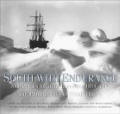
South with Endurance: Frank Hurley - official photographer
Book
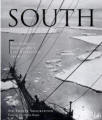
South! Ernest Shackleton Shackleton's own words
Book

Shackleton's Way: Leadership Lessons from the Great Antarctic Explorer
Book







